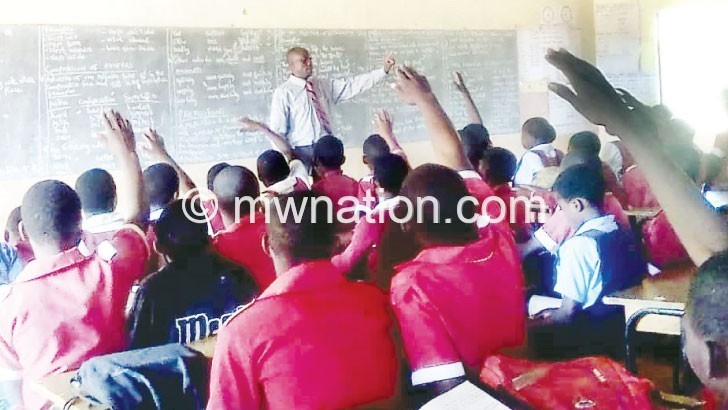Know top primary school
Natiswe Primary School in Dedza is the country’s best school in this year’s Primary School Leaving Certificate of Education (PSLCE) examinations.
According to Malawi National Examinations Board, the school, where half of the pupils learn in makeshift classrooms and tree shade, got most As and Bs.
All the 35 pupils who sat the national examinations at the school near Dzalanyama Forest Reserve, about 90 kilometres north-west of Dedza Town, passed.

The 100 percent pass rate comes against a myriad of challenges, including shortage of classrooms. Presently, there are only two blocks with two classrooms each for 921 pupils, pushing Standard Two, Three, Four, Five and Six learners to learn in the open.
Beating indifference
Natiswe head teacher Zachariah Joshua says it was not easy to achieve this feat.
“We are happy,” he says. “The school grapples with numerous challenges, ranging from inadequate teaching materials, poor learning structures and cultural indifference.
The school is struggling to overcome high dropout rates in the senior classes.”
Joshua explains: “We enroll many pupils in Standard One only to end up with less than 40 in Standard Eight. All this is due to people’s perception of school. They deem it less important. For years, the numbers reaching Standard Eight have been disappointing.”
In the 2017/18 academic year, Standard Eight had 28 pupils. In 2018/19, there were 35. This year, there are 36.
Despite this, the teachers are optimistic the good results will persuade both parents and pupils to change their attitude.
“Despite the high dropout rates, teachers ignored the setbacks and worked hard to prepare the remnants for the national examinations. They conducted extra lessons every morning from 6am without pay,” says the head teacher.
Slowly, the parents are taking part to combat absenteeism and dropout rates.
Nowadays, the guardians contribute maize flour so that children can have porridge every day. Natiswe is excluded from the national school-feeding programme credited with increased enrolment, passing rates and nutrition in schools taking part.
“This has worked wonders. No pupil absconds classes,” the head teacher explains.
Traditional leaders in the area have formulated by-laws penalising those who keep school-going children at home.
“Every day, parents ensure their children go to school and in good time. Children found loitering are questioned and their parents fined,” says Natiswe Parents and Teachers Association chairperson Levius Kachepa.
To Matundu Zone Primary education adviser Edna Taulo, Natiswe’s success is no surprise as she got all schools in her zone to administer assessment examinations to pupils regularly.
“Last year, the zone conducted two mock examinations—one in December and another in March. This academic year, I will advise teachers to source mock papers from other schools to maintain the good results,” she says.
It’s encouraging
For Taulo, this was her year as another centre in her zone, Matundu Primary School, scooped position three in the national examinations.
Dedza district education manager George Ngaiyaye says he will present awards to the best performing primary school.
“It is encouraging for a school located in a remote area and operating with few resources to achieve these results. As a district, we intend to use it as a model for other schools,” he says.
Ngaiyaye praises Natiswe’s teaching staff for putting the school on the path to success.
“The head teacher is strong and does not work in isolation. He works with teachers and this collaboration is working wonders,” he explains.
With Standard Eight pupils forfeiting their recess to keep learning, the head teacher says he is anticipating more pupils this year.





